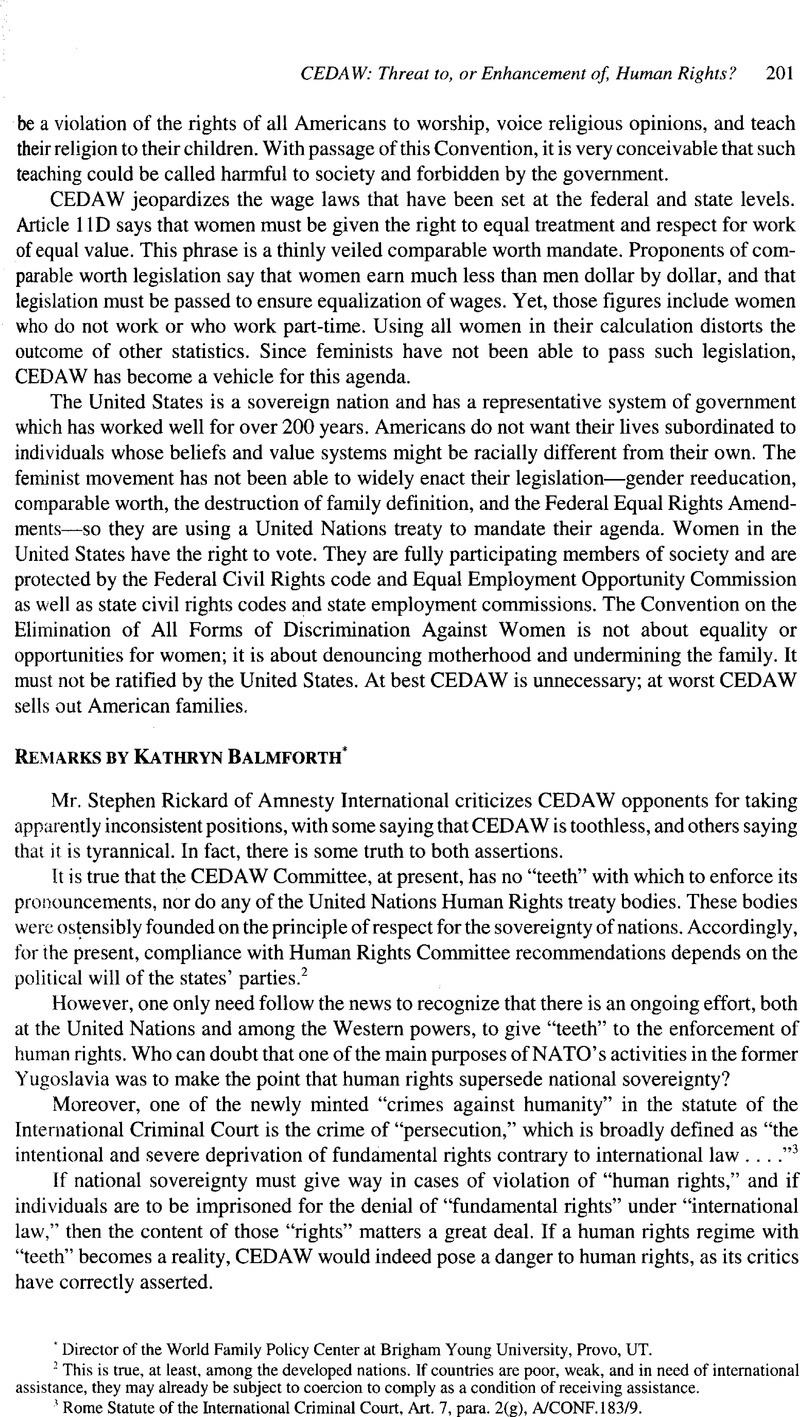No CrossRef data available.
Published online by Cambridge University Press: 28 February 2017

2 This is true, at least, among the developed nations. If countries are poor, weak, and in need of international assistance, they may already be subject to coercion to comply as a condition of receiving assistance.
3 Rome Statute of the International Criminal Court, Art. 7, para. 2(g), A/CONF. 183/9.
4 Universal Declaration of Human Rights, Art. 25, para. 2.
5 CEDAW/C/2000/CRP.3/Add.l/Rev.l, para. 42 (Jordan); CEDAW/C/1999/L.2/Add.3, para. 29 (Georgia); A/53/38, para. 110 (Croatia).
6 See, e.g., CEDAW/C/1999/L.2/Add.2, paras 26-27 (abortion); A/54/39, paras.127-28 (lesbianism).
7 See A/54/38, paras. 288-89 (China), para. 197 (Greece); EDAW/C/2000/ICRP.3/ Add.7/Rev.l, paras. 39-0.